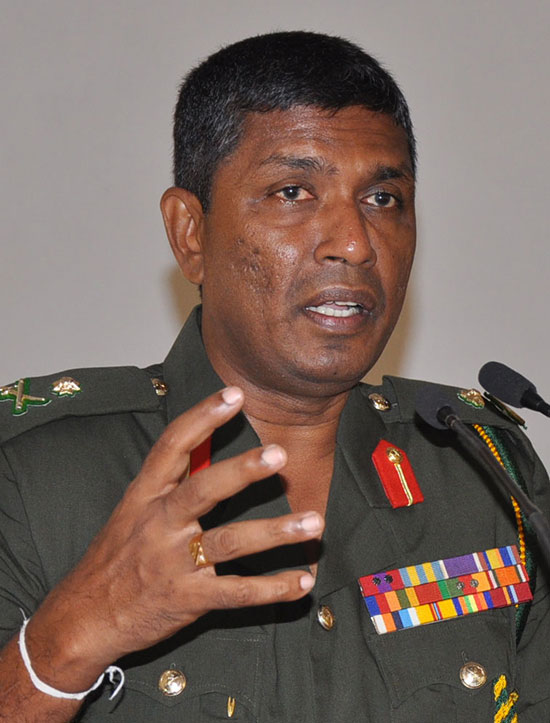
The US State Department is suspected to have listed Sri Lankan General Udaya Perera as a suspected war criminal and has subjected him to a travel ban.
Perera served as the former Commander of the Security Force Headquarters in Killinochchi and as Director of Operations during the final phase of the armed conflict and afterwards. This phase saw the slaughter of tens of thousands of civilians as hospitals and civilian no-fire zones were shelled by the Sri Lankan military. The Sri Lankan army stands accused of a litany of abuses which include, torture, sexual violence, and extrajudicial killings.
The Island notes that Perera was informed of the travel ban when he and his family attempted to board a Colombo-Singapore Airline flight on 5 December. They were expected to make a journey from Singapore to Los Angeles but Singaporean Airline staff at the Bandaranaike International Airport (BIA) told him that they had received an alert from US authorities. The recent ban comes despite having been granted multiple entry visas in 2019.
Reports indicate that the decision came a week prior to the announcement of US sanctions on two Sri Lankan military personnel, Chandana Hettiarachchi and Sunil Ratnayake, for their involvement in gross human rights violations. Hettiarachchi, a Sri Lankan naval officer, was subject to a travel ban for his involvement in the “denial of the right to liberty of at least eight of the ‘Trincomalee 11’ victims”; whereas, Ratnayake, a former sergeant, was sanctioned for “his involvement in gross violations of human rights, namely the extrajudicial killings of at least eight Tamil villagers in December 2000”.
The sanctions further follow the travel ban placed on Sri Lanka’s notorious army commander and leader of the 58th division of the army, Shavendra Silva. The International Truth and Justice Project has compiled an extensive dossier detailing his role in mass atrocities including summary executions; the shelling of hospital and food lines; the white phosphorus against civilians; rape and sexual violence; and enforced disappearances.
Read more here.
